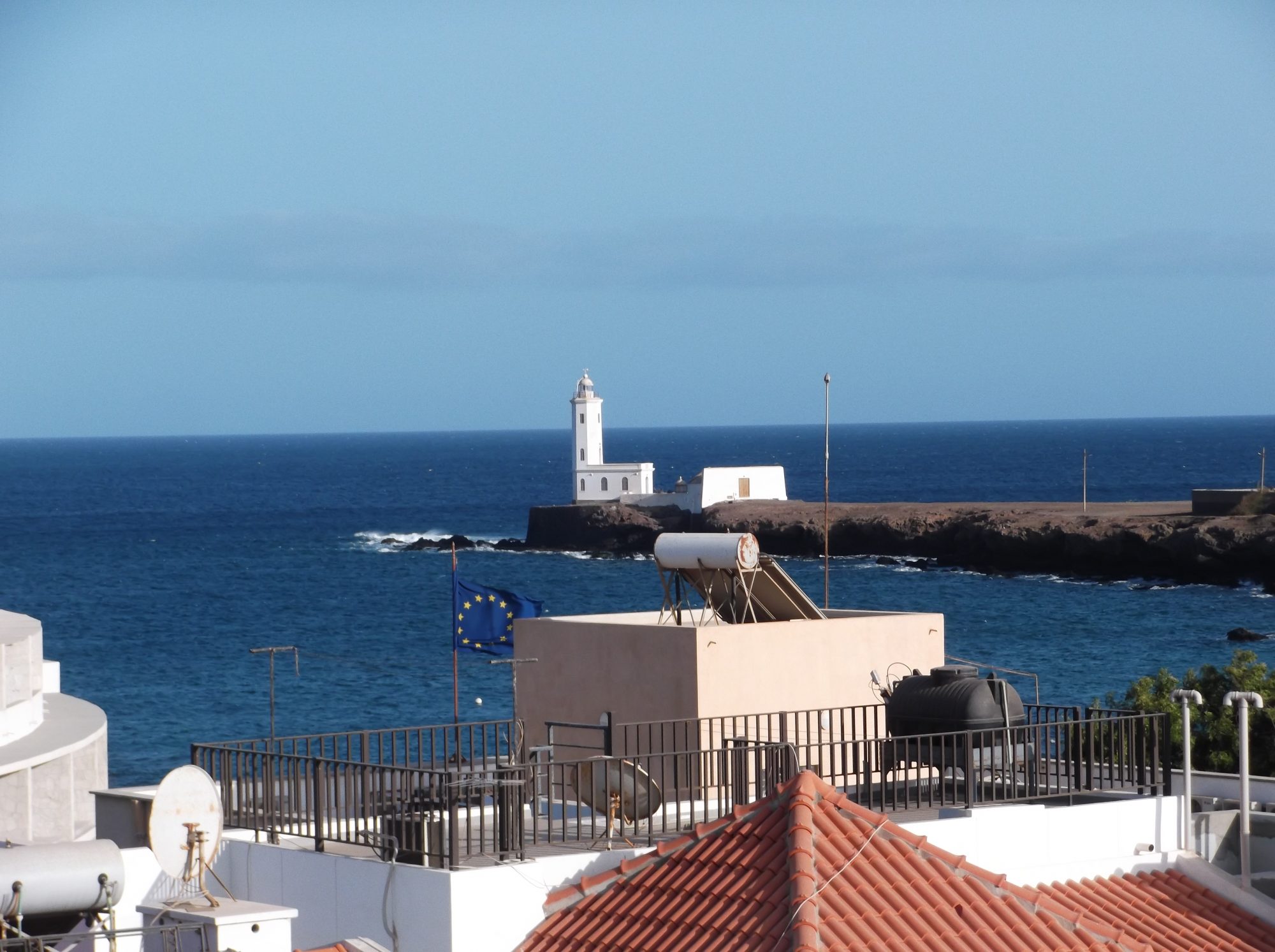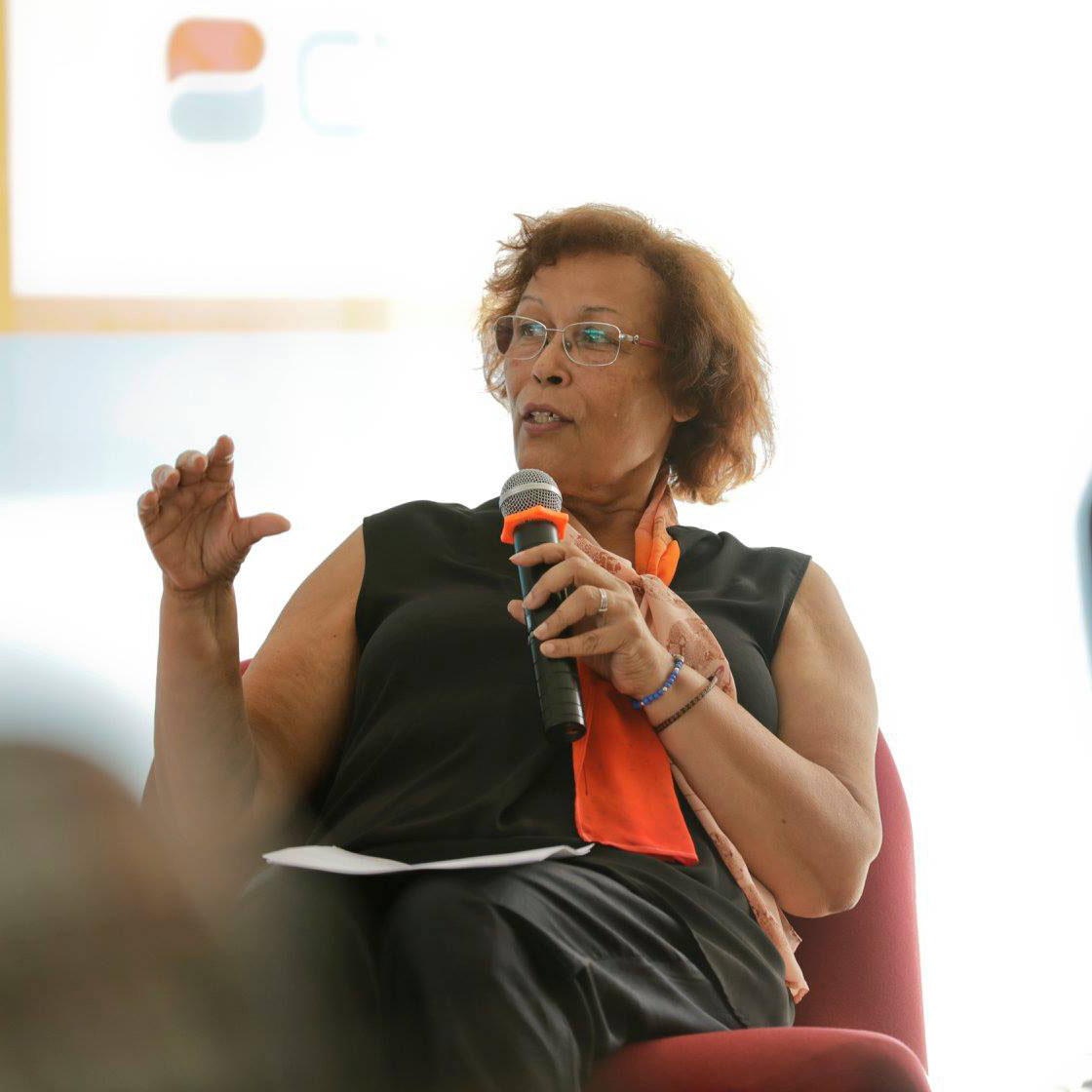Hoje a minha rua ainda não acordou
Hoje não ouvi os pássaros que me avisam do novo dia. Queria sentir o sopro do mar que atravessa a rua e me entra no quintal. Poder olhar os telhados e terraços e, da janela do autocarro, ver a cidade acordando. No entanto, embalada pelo som que guardo, não descubro logo à primeira que a cidade não veio.
As obras não retomam, os cafés, restaurantes e vendinhas não abrem, as lojas estão com os cadeados à vista. Um ou outro rapaz do continente traz pendurado meia dúzia de óculos e outros tantos relógios, mas não faz um gesto para seduzir os clientes. Não há bolos à venda, nem garrafas de água gelada ou torresmos vermelhos.
Pressa nas gentes que não se olham. Murmúrios sobre a COVID-19.
As nossas ruas deixaram de ser estreitas e agressivas.
Nenhum país estava preparado para esse novo coronavírus, mas há uns mais despreparados do que outros. Cabo Verde é um dos países mais expostos às situações de carência severa. É assim em matérias fundamentais. A violência, o infanticídio, o femicídio, o abandono familiar; a luta contra a miséria, a luta pela paridade e pelo empoderamento das mulheres, a dignidade, a igualdade e a liberdade de todos nós. Há tantas batalhas a defender. Um vírus é suficiente para fazer tremer as ilhas, pô-las em suspenso e abrir-lhe as feridas.
O último balanço sobre a COVID-19 diz que já temos infetados em três das nove ilhas. Ventiladores? Camas? Máscaras e viseiras? Na desenvolvida Europa fala-se no drama – e é – de ter que se escolher, entre dois doentes, aquele que tem mais possibilidades de ser salvo com um ventilador. No meu país, tenho a certeza que é um drama para os governantes terem que escolher em cada orçamento anual, ao longo desses quarenta e cinco anos de independência, as populações que vão ficar fora das oportunidades de trabalho, normalmente oportunidades de uma vida.
Ficar em casa, prevenção, higiene… são recomendações que salvam as nossas vidas. E alguns estamos a cumprir. Mas e os outros que não sabem onde buscar a próxima refeição? Que não dispõem de água ou sabão para lavar as mãos? Que não têm onde pôr os seus velhos para não se contaminarem e que se atropelam em casas minúsculas por um pouco de ar? Quem lhes falará de distanciamento e contágio? Em açambarcamento nos supermercados?
Das recomendações dos Serviços de Saúde, salta uma linha que mostra a sociedade dividida e deixa um amargor no peito.
Heute ist meine Straße noch nicht wach
Heute hörte ich nicht die Vögel den neuen Tag ankündigen. Ich wollte die Meeresbrise spüren, die durch die Straße in meinen Garten weht, und über die Dächer und Terrassen blicken, aus dem Autofenster die erwachende Stadt sehen. Den Vogelgesang habe ich in meinem Kopf abgespeichert und so merke ich nicht gleich, dass die Stadt heute noch gar nicht da ist.
Die Baustellen ruhen, vor den Ladengeschäften sieht man die Schlösser hängen und die Cafés, Restaurants und Imbissbuden öffnen heute nicht. Nur der eine oder andere Straßenverkäufer trägt baumelnd ein halbes Dutzend Sonnenbrillen und ein weiteres halbes Dutzend Armbanduhren am Leib, macht aber keinerlei Anstalten, sie Kunden anzupreisen. Es gibt keinen Kuchen zu kaufen, ebenso wenig gekühltes Wasser oder Speckkrüstchen.
Leute in Eile, sie schauen einander nicht an. Gemunkel über COVID-19.
Unsere Straßen haben aufgehört eng und aggressiv zu sein.
Kein Land war auf dieses neue Coronavirus vorbereitet, aber es gibt Länder, die sind noch unvorbereiteter als andere. Kap Verde ist eines der Länder, die eine prekäre Situation am härtesten trifft. Es geht um grundlegende Fragen wie Gewalt, Kindstötung, Femizid, von der Familie verlassene Menschen; es geht um den Kampf gegen das Elend und für Chancengleichheit, für das Empowerment der Frauen, um unser aller Würde und Gleichheit und Freiheit. Es gibt so viele Kämpfe auszufechten. Ein Virus genügt, um die Inseln zu erschüttern, sie aus dem Lot zu bringen und ihre Wunden aufzureißen.
Die jüngste Bilanz zu COVID-19 zeigt, dass es bereits auf drei von den neun Inseln Infizierte gibt. Beatmungsgeräte? Betten? Schutzmasken und -brillen? Im entwickelten Europa spricht man von einem Drama – was es auch ist – und von der Notwendigkeit, von zwei Patienten denjenigen auszuwählen, bei dem eine Rettung mit einem Beatmungsgerät aussichtsreicher scheint. In meinem Land kann ich mir sicher sein, dass es für die Regierenden in diesen ganzen 45 Jahren seit der Unabhängigkeit jedes Mal beim Einteilen des Jahresbudgets ein Drama ist, auswählen zu müssen, welche Bevölkerungsgruppen von Chancen auf Arbeit und damit Chancen auf Leben ausgeschlossen werden sollen.
Zuhause bleiben, Prävention, Hygiene… so lauten die Empfehlungen zum Schutz unseres Lebens. Manche kommen ihnen nach. Aber was ist mit den anderen, die nicht wissen, wo sie die nächste Mahlzeit hernehmen sollen? Die kein Wasser haben, um sich die Hände zu waschen? Die nicht wissen, wohin mit ihren Alten, um sie vor Ansteckung zu schützen, wenn man sich in der winzigen Behausung gegenseitig auf die Füße treten muss, um ein bisschen Luft zu haben? Wer wird denen etwas von Abstandhalten und Ansteckung erzählen? Von Hamsterkäufen in den Supermärkten?
Die Empfehlungen der Gesundheitsdienste zeigen eine Linie auf, die die geteilte Gesellschaft bloßlegt und einen bitteren Beigeschmack hinterlässt.
Übersetzung: Lea Hübner
My Street is Yet to Wake up Today
Today, I didn’t hear the birds singing, as they usually do to let me know it’s a new day. I wish I could feel the ocean breeze that takes over my street and reaches my backyard. I wish I could see the roofs and terraces in the neighborhood. I wish I could see the city waking up from behind my car windows. However, recalling the sound of birds that I can only hear within me, I don’t seem to realize that, at first, the city is yet to wake up today.
Construction works have been halted, shops have a padlock on their doors, and cafés, restaurants, and grocery stores won’t be open. There are only a couple of young men from the continent walking around with half a dozen sunglasses or a few wristwatches on display, but they don’t do anything to attract clients. There is no one selling cake, cold water bottles, or home-made pork rinds on the street.
Whoever is out is in a hurry and doesn’t look at anyone around. There are whispers about COVID-19 everywhere.
Our streets are no longer narrow and aggressive.
No country was ready for this new coronavirus―but some were more unprepared than others. Cape Verde is one of the most vulnerable countries due to a severe lack of infrastructure. The same is true of other fundamental subjects: violence, infanticide, femicide, family abandonment, fight against poverty and hunger, fight for equal rights, women empowerment, dignity, liberty, and equality for all of us. There are so many battles to fight… A virus is enough to shake up our islands, make our life stand still, and expose our wounds.
The latest COVID-19 statistics indicate that we have people infected in three of our nine islands. Ventilators? Hospital beds? Masks and face shields? In Europe, the developed world, they talk about the real-life dilemma of having to choose between two people who are sick, selecting the one who has a higher probability of being saved after being given access to a ventilator. In my country, I am sure leaders have been facing a different dilemma these past forty-five years of independence: rethinking the annual budget and choosing which part of the population will miss out on job opportunities and, consequently, life opportunities.
Staying home, practicing prevention, keeping good hygiene… These are recommendations that can save lives. And some of us are following these recommendations. But, how about those who don’t know when they’ll have their next meal? How about those who don’t have water and soap to wash their hands? How about those who don’t have anywhere they can send their elderly family members to, and must share the crowded space of their tiny, poorly-ventilated houses? Who will tell them about social distancing and communicable diseases? Who will explain to them what hoarding means?
Reading between the lines, the guidelines issued by health authorities show us a society divided. And that leaves me with a heavy heart.
Translation: Rafa Lombardino
Share












